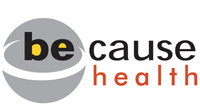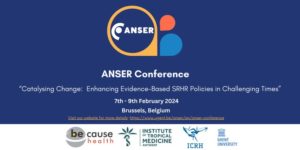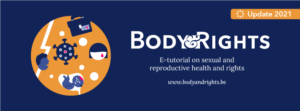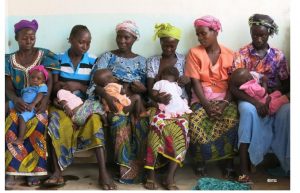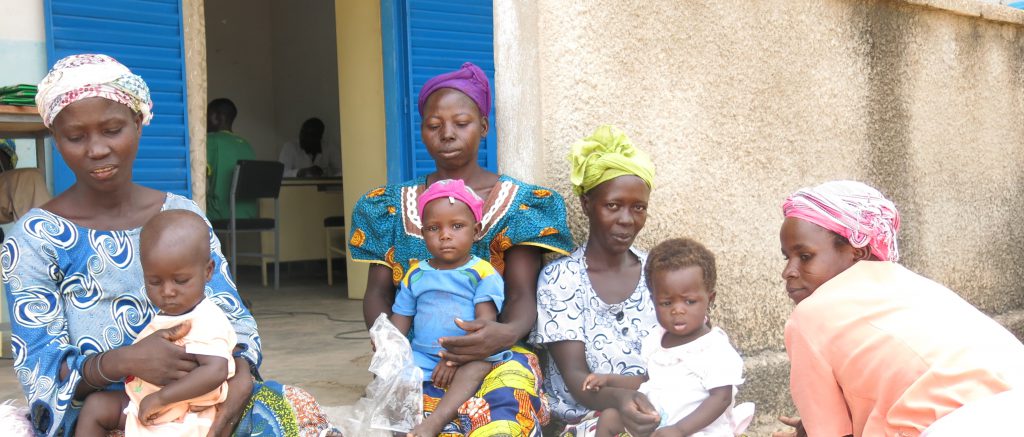
The working group on Sexual and Reproductive Health and Rights (SRHR) and HIV is an initiative of several member organisations and institutes of Be-cause Health which are specifically concerned in the implementation of the policy note “The Belgian Development Cooperation on Sexual and Reproductive Health and Rights” of March 2007.
The working group aims to contribute to a better sexual and reproductive health in all countries where Belgian development actors or those supported by Belgium intervene. As specific objective, it wants to facilitate the implementation of the policy note SRHR and this in the broader framework of the general health policy note. Towards this end, the working group develops tools on SRHR and HIV which can be used in the different phases in the cyclus of development programmes, from the negotiations until the evaluation.
The activities of the working group conform to the three priorities of the Belgian Development Cooperation:
- the integration of sexual and reproductive health care in general health care services,
- the fight against sexual violence and other related malpractices,
- the sexual and reproductive health care and rights during humanitarian crises, conflicts and peace construction.
Seminar on Public Private Partnerships for Reproductive Health – What does it take to succeed?
The working group organised on 21st November 2018 a seminar on Public Private Partnerships for Reproductive Health – What does it take to succeed? Consult the report here.
 MORE
MORE
past events
Reference documents
- Strategy note “Recht op Gezondheid” (The right to health) – SRHR module [not yet available online]
- Accelerate Progress - Sexual and Reproductive Health and Rights for All (Executive Summary)
Tools
SRHR and Young People
A quarter of the world population is aged between 10 and 24. This is about 1.8 billion young people. The world never had as many young people as today. They are about to start - or have already started - their sexual and reproductive life. Do you want to find out more about SRHR and young people – read this introduction & infographic:SRHR and HIV
Most HIV infections are transmitted by sexual intercourse or during pregnancy, childbirth or breastfeeding. Sexually transmitted diseases (STD) can also increase the risk of HIV contagion. Sexual and reproductive health problems and HIV often share the same underlying structural causes. Therefore, it is recommended to tackle HIV and SRHR together. Do you want to find out more about SRHR and HIV – read this introduction & infographic:SRHR and Gender
A lack of Sexual and Reproductive Health and Rights (SRHR) is both a cause and an effect of gender inequality. Gender equality refers to equal opportunities to make SRHR a reality for everyone, without any form of discrimination, coercion or violence. Do you want to find out more about SRHR and Gender – read this introduction & infographic:E-tutorial: free online course
On the eve of the international conference on Sexual and Reproductive Health and Rights - She Decides in Brussels, the E-tutorial “Body and Rights” was launched. This is a trilingual website (in English, French and Dutch) with an online course on Sexual and Reproductive Health and Rights. www.bodyandrights.beSeven modules & 34 presentation videos
“Why are there so many teenage mothers in developing countries?”
Alexander De Croo launches the unique e-tutorial Body & Rights which allows you to learn easily and at your own pace.
Deputy Prime Minister and Minister of Development Cooperation Alexander De Croo supports the Be-cause health initiative: “This tool contributes to one of the main priorities of my policy: promoting Sexual and Reproductive Health and Rights. Thanks to ‘Body & Rights’, all stakeholders of the Belgian development cooperation and of the Belgian foreign policy will be able to learn about Sexual and Reproductive Health and Rights online. That is important because it will allow us to include these topics more significantly in development programs in the field.”external links
- The International Centre for Reproductive Health - ICRH
- The Academic Network for Sexual and Reproductive Health and Rights Policy - ANSER
- International Conference on Population and Development - ICPD
- United Nations Population Fund - UNFPA
- She Decides - Global movement to promote the rights of every girl and woman
